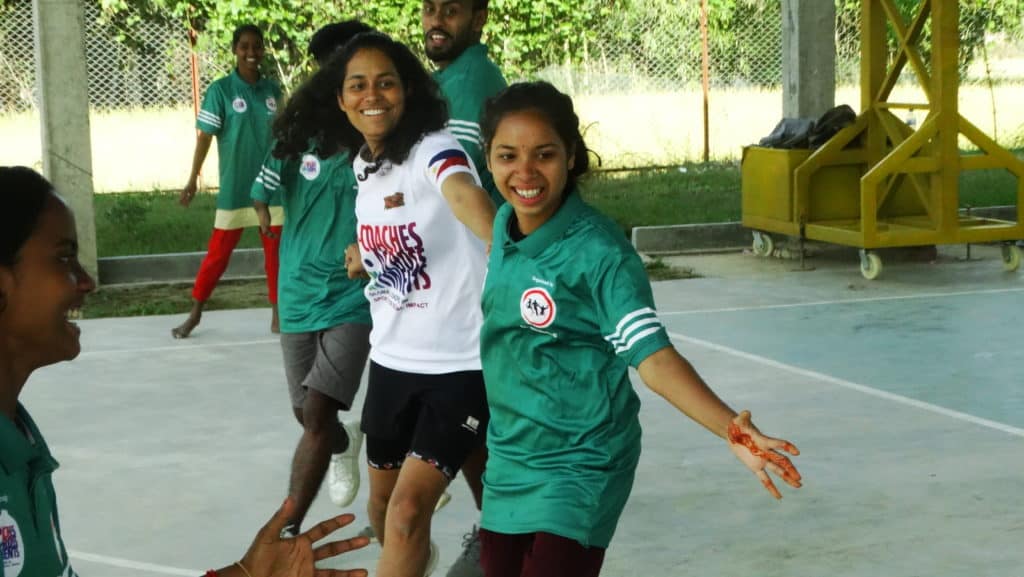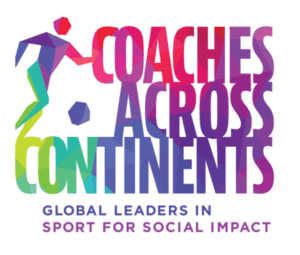CAC leaders Saraswati Negi and Nandini Vijay Kumar recently traveled to Bangladesh to work with coaches and youth leaders from our partners Sports for Hope and Independence. Here Nandini writes about that experience.
PLAY…… the word that always puts a smile on everyone’s face irrespective of age, caste, socio economic background and region. So when we say Purposeful Play it is a mixed reaction of both joy and confusion, joy because it is play but the confusion is how can it be purposeful. So then what is Purposeful Play? As the name suggests, play with a purpose. We at CAC believe that play should be meaningful and our participants should learn through our Self-Directed Learning methodology. We use play as a tool to help our coaches/ participants address social issues and life skills, which helps them better connect to real life situations.
What better way then to interact with young coaches and youth leaders of Sports for Hope and Independence, Bangladesh than through Purposeful Play as we did recently.
An introduction to the Play Based Methodology, Purposeful Play and Education Outside the Classroom opened the minds of these young leaders who will go back to their communities and work with children, adolescents and youth.
At the onset we observed the participants were confused about how we can connect sport/games to life but the next day after experiencing real life situations on field they were able to make these connections very well. As we follow the 80:20 play: discussion method we found that participants express themselves more confidently and were able to recognize challenges in their communities and they were able to come up with different solutions to the same challenge. The coaches experienced the joy of playing and understood the importance of including play in their everyday training sessions.
Gender inequality is one of the biggest challenges that any community faces especially communities in South Asia that are Patriarchal over generations and these traditions are considered normal here. Cultural norms and restrictions curtail girls/women from stepping out, voicing out and moving forward toward their own betterment. The Purposeful Play methodology helped these young coaches identify cultural and natural differences between boys and girls/ men and women.
Every developing or underdeveloped country is working toward achieving the United Nations Sustainable Development Goals and through our Purposeful Play we helped the coaches understand the meaning of sustainability and how education and sport need to go hand in hand to achieve sustainability. Purposeful Play focuses on SDG4: Quality Education where we help our participants redefine success and help them differentiate between Chance and Choice, cheating and making mistakes and learning from their mistakes and from one another which is Self-Directed Learning. As a coach what better education can one give than to help them understand that it is OK to make mistakes as long as they learn from them and do not keep repeating the same mistakes over and over again.
A coach should be one who can create a safe space for his/her participants to be able to express themselves freely and not judge them based on their caste, religion, community, socio economic background or their experiences. A coach is not all knowing there should not be any hierarchy and they should be willing to listen to their participants, be one among them and be open to learning from them as well.
Messages like these when spoken can be very heavy for one to handle and he/she might not be able to understand the concept clearly but we have created an experiential learning environment where we address these through games/play so once they experienced the situations they were able to connect faster.






